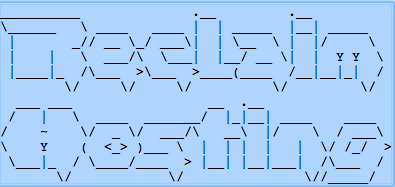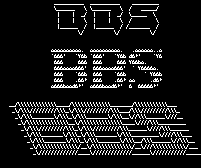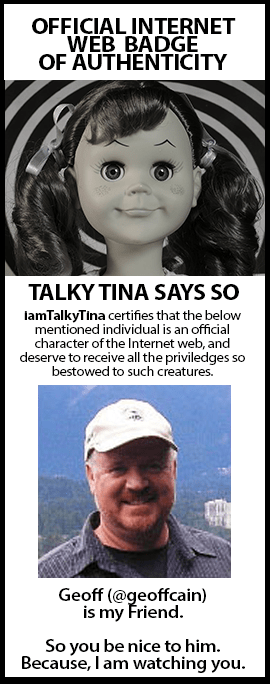I think there are some interesting parallels between what is happing with “Reclaim Hosting” and the BBSs of the late 80s. I have not been this excited about the possibilities of technology in the colleges since the BBS days. (BBS is a computer Bulletin Board System that users dialed into via a telephone modem.) Reclaim Hosting has the DIY, the inventiveness, and mildly paranoid enthusiasm that harkens back to the late 80s “cyberculture” when people talked at great length about cyberculture (think coke, espresso, and mirrorshades). Reclaim Hosting is an internet hosting service (and with amazing service it is), that gives you a cPanel, and a 100 free tools to build your own commercial-free domain where you control your information and how it is used. This is meant to help you get out from under Google and Facebook. Why? Well one example is Facebook and its “frictionless sharing” – I can’t think of a worse euphemism for getting screwed. Supposedly, frictionless sharing is “sharing that occurs without any additional effort required, for example, if a scholar is gathering resources for her own research, then using a social bookmarking tool is an effective tool for her as well as making the list public.” And I get that but, but that implies a voluntary act on the part of the user. Facebook will tell folks what you are reading, watching, and listening to whether you like it or not. You could go in and adjust security settings but it should default to private. I am in Facebook because my family and friends are in there. Eventually there will be a solution to this because if I know my internet models, they will tinker with Facebook little by little until it is virtually un-useable. But when one is in the middle of being frictionlessly shared, one can’t imagine how that could possibly happen. This is how I used to think about Bu lletin Board Systems. I never thought I would be networking with people and computers without a phone. That was, for some, the whole point of hacking: one needed to access a computer bulletin board system across the country but could not afford the long distance charges the phone company would charge for that access. So it was very important to either figure out a way to circumvent that charge or to redirect it to an account that wasn’t yours (preferably a corporate account). Another path was to find backdoors to systems that allowed one to access BBS’s from one another. In other words, I could log into a local library BBS and use it to access one in France. BBS systems were slow, expensive, and time-consuming: it took you a while to figure out that the board you were on was a front for illegal software distribution (warez) or porn. But there were some amazing communities out there. I had a free account on the WELL for years – I think that is where I first ran into Howard Rheingold there and he is still out there making connection and building communities. According to Wikipedia, estimated there were 60,000 BBS systems serving 17 million users in the US alone in 1994. There were virtual worlds (text based), role-playing games, BBS based literature conferences, social BBSs of everykind, religious themed BBSs; hackers, crackers, coders, phone phreaks all had BBSs dedicated. I participated in a number of them and managed to access many through Telnet and a local college libraries out-of-the-box implementation of Sirsi-Dynix. I remember when the internet was just coming online and people were telling me about this great coming revolution. I didn’t buy it: why would I access the internet to read a magazine when I could get the same information by logging into a bulletin board and downloading the same information as a Hypercard stack?
lletin Board Systems. I never thought I would be networking with people and computers without a phone. That was, for some, the whole point of hacking: one needed to access a computer bulletin board system across the country but could not afford the long distance charges the phone company would charge for that access. So it was very important to either figure out a way to circumvent that charge or to redirect it to an account that wasn’t yours (preferably a corporate account). Another path was to find backdoors to systems that allowed one to access BBS’s from one another. In other words, I could log into a local library BBS and use it to access one in France. BBS systems were slow, expensive, and time-consuming: it took you a while to figure out that the board you were on was a front for illegal software distribution (warez) or porn. But there were some amazing communities out there. I had a free account on the WELL for years – I think that is where I first ran into Howard Rheingold there and he is still out there making connection and building communities. According to Wikipedia, estimated there were 60,000 BBS systems serving 17 million users in the US alone in 1994. There were virtual worlds (text based), role-playing games, BBS based literature conferences, social BBSs of everykind, religious themed BBSs; hackers, crackers, coders, phone phreaks all had BBSs dedicated. I participated in a number of them and managed to access many through Telnet and a local college libraries out-of-the-box implementation of Sirsi-Dynix. I remember when the internet was just coming online and people were telling me about this great coming revolution. I didn’t buy it: why would I access the internet to read a magazine when I could get the same information by logging into a bulletin board and downloading the same information as a Hypercard stack?
The whole vibe around Reclaim Hosting, and the founders’ Jim Groom and Tim Owen’s course DS 106, will make you nostalgic for pirate radio and BBS culture because that is basically what it is – the course even has its own internet radio station. It is a MOOC in the truest sense of the word, not in the corporate watch-a-vid-take-a-test sense: DS 106 utilizes a wide range of technologies to help students create assignments, connect with one another, and learn together.
But it is not the 80s – there is some very serious and interesting work to be done. The idea is that individuals (like students, remember that they are individuals too), can claim a domain name, host that domain, install tools such as WordPress, and then link that blog to their course, instructor, and fellow students. A few years back, I was still teaching dev ed English at the community college level and I thought this was not ready for primetime. I few years went by and I tried it again and it was a LOT easier to do. I had not gotten more tech savvy or smarter – the tools were just easier to use. I moved my blog to my new hosting through Reclaim Hosting. In my work as an instructional designer and Director of Academic Technology, I need to help my institution get out of the old box that is the LMS, use collaborative tools to build collaborative learning, create student-owned authentic assessment through shared portfolios, and prepare students for succeeding in a networked world. There is a connectivist, open pedagogy that many of us are still working on and with that will tie all of these ideas and tools together. These are exciting times indeed!





